Space Technology, Patterns of Warfare and Force Build-up: Between a Power and a Small State
This article concentrates on the question of how the expansion into space, which was part of the information and space technology revolution, affected patterns of warfare and concomitantly affected force build-up in the US and Israeli military forces . It will describe and analyze the influence of space technologies on the changes that have occurred […]
Terrorism Risk and their impact on tourism
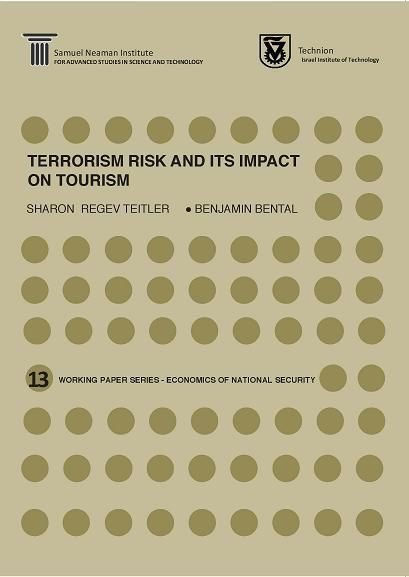
Tourism is very sensitive to the occurrence of terror despite the extremely low probability of getting hurt in acts of terror. The study suggests that the high sensitivity of tourists to the occurrence of terror is due to substitution among tourist destinations rather than risk aversion. This conclusion is based on an empirical structural model […]
Is Job Stability at the Beginning of One’s Career Good for Job Stability Later On?
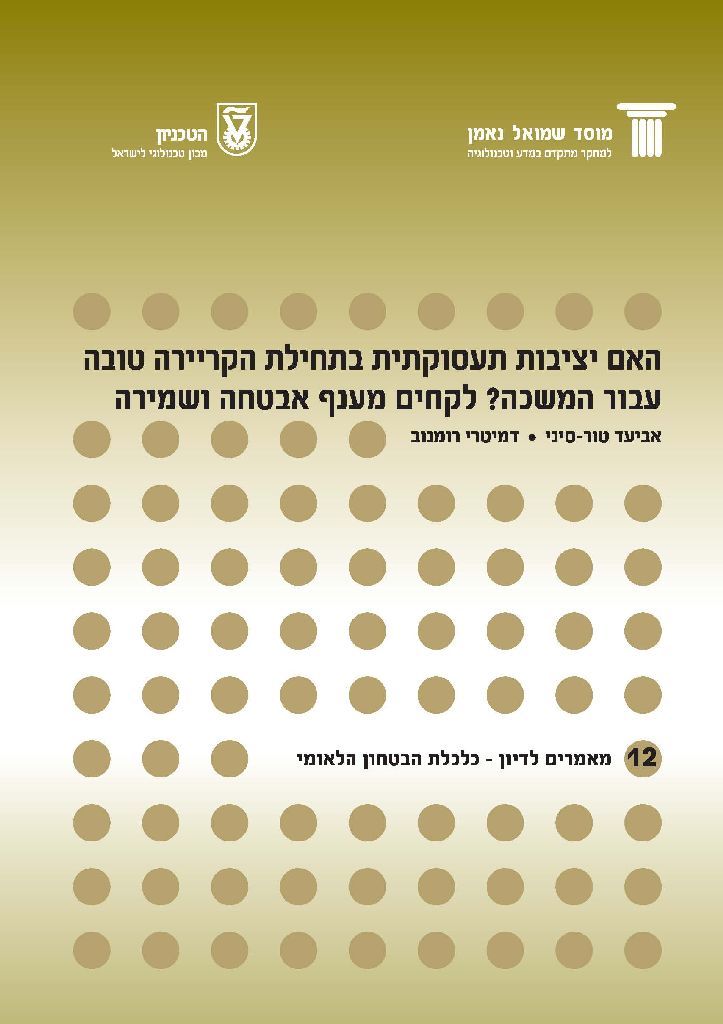
Most mobility takes place at the outset of an individual’s occupational career. Individuals need this mobility to learn the market conditions and find posts that maximize the alignment of their credentials and their wages. We regard the Intifada that triggered a deep recession in 2001-2003 and dampened labor demand in all industries other than guards […]
Adaptation Processes and Consumer Behavior Under Uncertainty Security Conditions
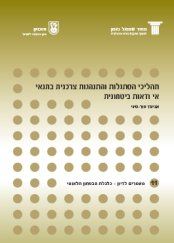
Towards the end of the fall of 2000, terrorism began to strike the State of Israel again. It upset everyday life and prevented normal routine. However, according to Kirschenbaum (2005), if a society does not adopt a “survival strategy” it is likely to fall apart without its having the ability to rehabilitate itself in the […]
The Struggle for Palestinian Hearts and Minds: Violence and Public Opinion in the Second Intifada
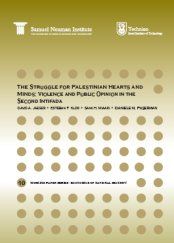
This paper examines how violence in the Second Intifada influences Palestinian public opinion. Using micro data from a series of opinion polls linked to data on fatalities, we find that Israeli violence against Palestinians leads them to support more radical factions and more radical attitudes towards the conflict. This effect is temporary, however, and vanishes […]
An Evaluation of Strategic Arms Limitation Agreements Model, with an Application to the Israeli-Syrian Conflict
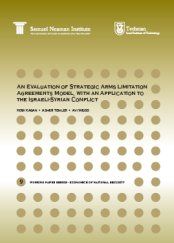
This study evaluates the order of magnitude of the monetary cost of achieving an international strategic terror weapons (TWP) limitation agreement in an asymmetric arms race, with an application to the Israeli-Syrian conflict. It extends the Kagan, Tishler and Weiss (2005) framework and develops a model of resource allocation between consumption and security goods in […]
Religious Terrorism: A Cross-Country Analysis
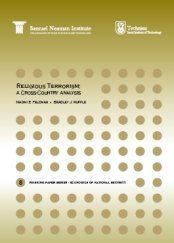
A growing theoretical literature explains why religious organizations are better suited to perpetrate suicide bombings in particular and terror attacks more generally than their non-religious rivals. We offer the first comprehensive test of the roles of religion and religious ideology in terrorism using a unique country level database on domestic terrorism. Our results show that […]
Terror and the Costs of Crime
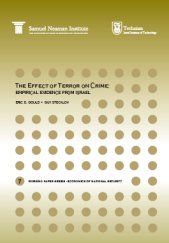
This paper argues that terrorism, beyond its immediate impact on innocent victims, also raises the costs of crime, and therefore, imposes a negative externality on potential criminals. Terrorism raises the costs of crime through two channels: (i) by increasing the presence and activity of the police force, and (ii) causing more people to stay at […]
Are Voters Sensitive to Terrorism? Direct Evidence from the Israeli Electorate
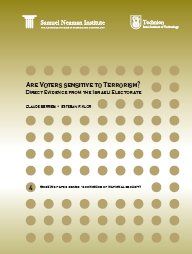
This paper relies on the variation of terror attacks across time and space as an instrument to identify the causal effects of terrorism on the preferences of the Israeli electorate. We find that the occurrence of a terror attack within three months of the elections is associated with a 1.35 percentage points increase on the […]
The Economic Consequences of the Use and Control of Land Resources by the Defense Sector in Israel
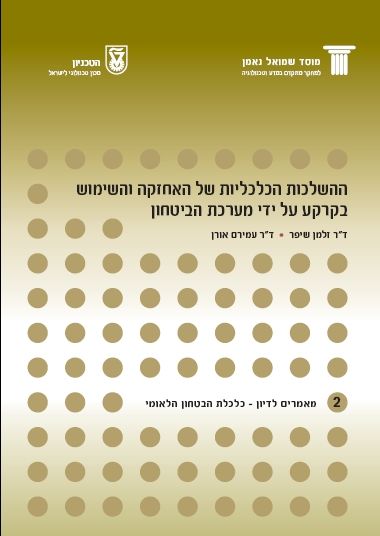
This article presents and analyzes the economic implications of the use land resources for national defense on both the civilian and defense sectors in Israel and discusses means to increase the efficiency of this use. It introduces a theoretical framework for the analysis of the role of land in a two-period civilian-military model subject to […]
